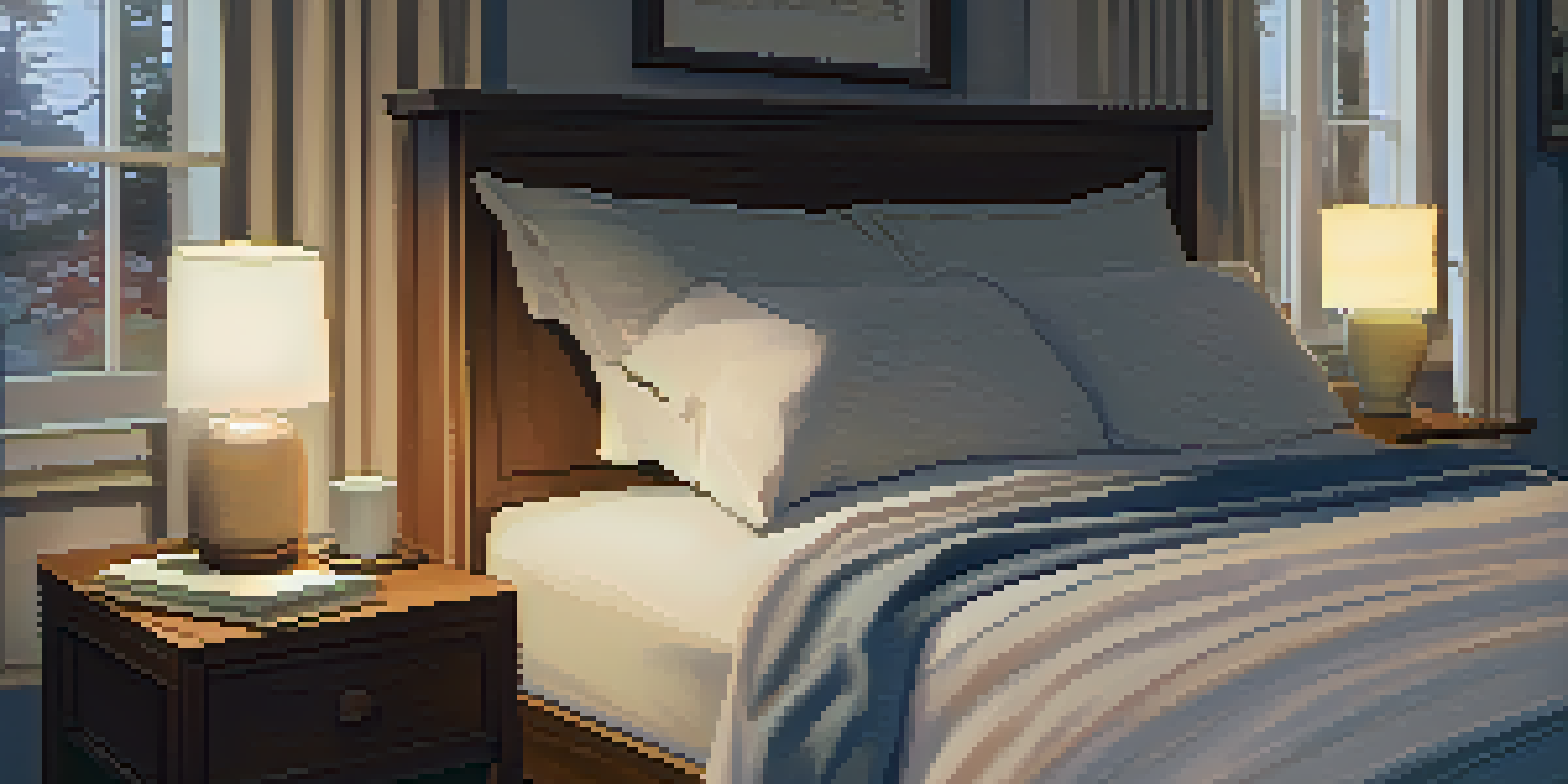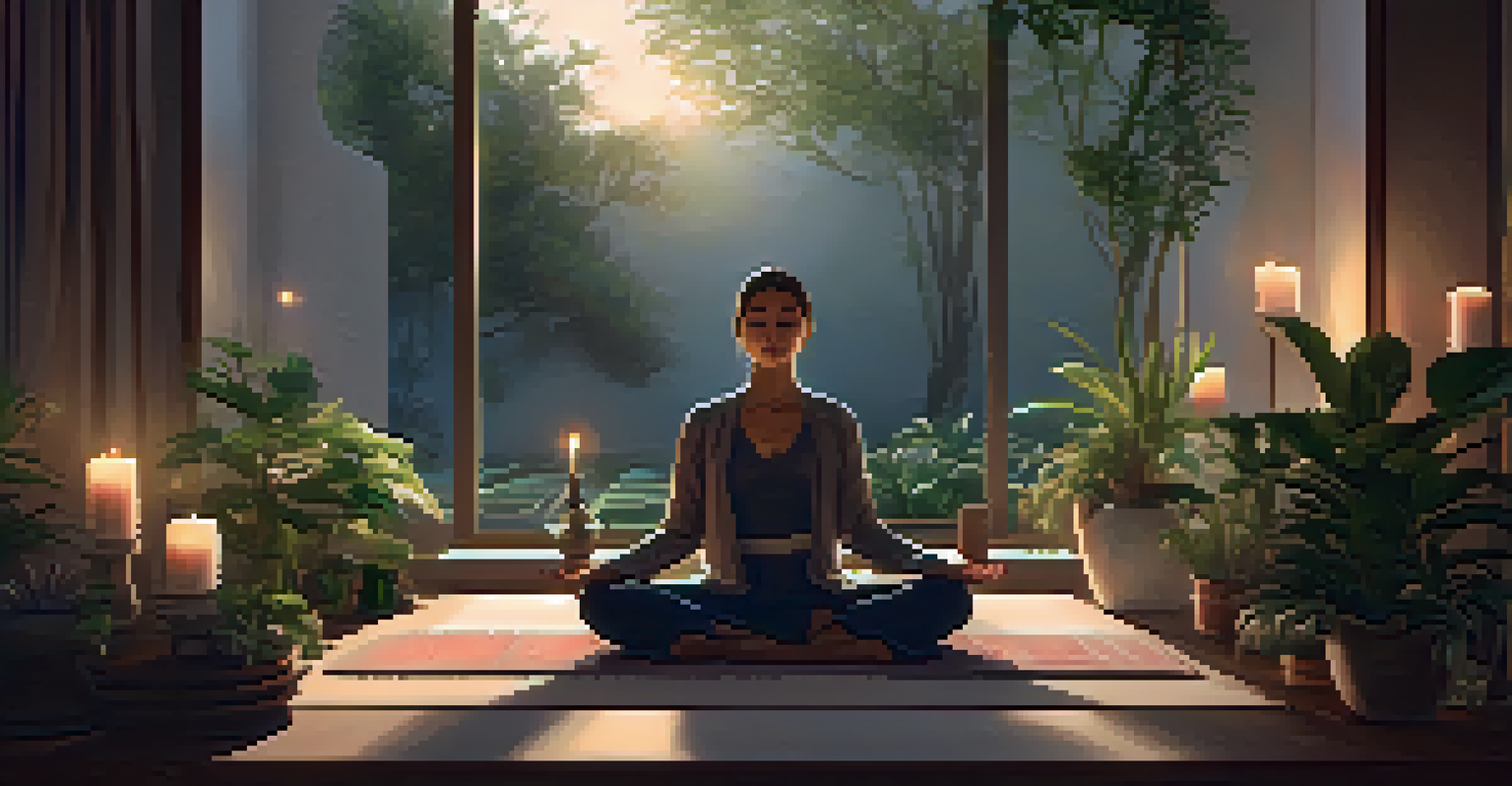Technology and Sleep Hygiene: Balancing Screen Time

Understanding Sleep Hygiene and Its Importance
Sleep hygiene refers to a set of practices that promote consistent, uninterrupted sleep. Good sleep hygiene can help you wake up feeling refreshed and energized, while poor habits can lead to insomnia or restless nights. Think of it as a routine for your brain and body, much like a warm-up before exercise.
Sleep is the best meditation.
Establishing a proper sleep environment plays a significant role in sleep hygiene. This includes factors like room temperature, noise levels, and even the comfort of your mattress. When these elements are in tune, your body knows it’s time to wind down and rest.
But what happens when technology enters the mix? With screens everywhere, from smartphones to computers, our sleep hygiene can easily be disrupted. Recognizing this impact is the first step toward finding balance.
The Role of Technology in Our Sleep Patterns
Technology has revolutionized the way we live, but it also comes with challenges for our sleep patterns. The blue light emitted by screens can interfere with the production of melatonin, the hormone that helps regulate sleep. This can lead to difficulties falling asleep or maintaining deep sleep.

Many people find themselves scrolling through social media or binge-watching shows right before bed, thinking it’s a way to unwind. However, this can actually result in overstimulation, making it harder to transition to sleep. Imagine trying to calm down after a thrilling movie—your mind may race, keeping you awake longer.
Importance of Sleep Hygiene
Good sleep hygiene practices promote restful sleep, while poor habits can lead to insomnia and fatigue.
Understanding the impact of technology is crucial in developing strategies to improve sleep quality. By recognizing how our devices affect us, we can start to make healthier choices that prioritize rest.
Identifying Healthy Screen Time Limits
Establishing boundaries around screen time can be a game-changer for your sleep hygiene. It’s not about eliminating technology altogether but finding a healthy balance. For instance, consider setting a specific time to put away devices, ideally an hour before bedtime.
The greatest wealth is health.
You might create a 'tech curfew' where screens are switched off at a designated hour. This can help signal to your body that it’s time to unwind and prepare for sleep. Think of it like closing the curtains on a busy day, allowing yourself to relax.
Experimenting with these limits can help you discover what works best for you. Each person's relationship with technology is different, so listen to your body and adjust accordingly.
Creating a Tech-Free Bedtime Ritual
Implementing a tech-free bedtime ritual can significantly enhance your sleep hygiene. This could include activities such as reading a physical book, practicing meditation, or enjoying a warm bath. These calming routines can help your mind transition from the busyness of the day to a more restful state.
Consider incorporating soothing activities that don't involve screens. For example, journaling about your day can be a great way to clear your mind before sleep. It’s like letting your thoughts flow onto the page, helping you release any lingering worries.
Technology's Impact on Sleep
The blue light from screens disrupts melatonin production, making it harder to fall and stay asleep.
Remember, the goal is to create a consistent and relaxing environment that fosters better sleep. By replacing screen time with these calming rituals, you can enhance your overall sleep quality.
Utilizing Technology to Improve Sleep Quality
While technology can hinder sleep, it can also be harnessed to enhance sleep quality. There are numerous apps and devices designed to help monitor and improve your sleep habits. For instance, sleep tracking apps can provide insights into your sleep patterns, helping you identify areas for improvement.
Consider using features like 'Night Shift' on your devices, which reduces blue light exposure in the evening. Additionally, some wearable devices can monitor your sleep cycles, offering personalized suggestions for better rest. It’s like having a sleep coach right on your wrist!
By leveraging technology wisely, you can create a more supportive sleep environment. Just remember to balance it with healthy habits to ensure you’re not overwhelmed by screens at bedtime.
The Impact of Social Media on Sleep Hygiene
Social media can be both a source of connection and a sleep disruptor. Engaging with social media platforms often leads to scrolling late into the night, which can significantly impact your sleep hygiene. The fear of missing out (FOMO) can keep you glued to your screen, even when you know you should be sleeping.
Moreover, the emotional responses elicited by social media can affect your mental state before bed. If you find yourself feeling anxious or overwhelmed after browsing, it’s likely that your sleep will suffer. Picture it like reading a thrilling book before bed—your heart might race, making it challenging to settle down.
Creating a Tech-Free Routine
Implementing a tech-free bedtime ritual can enhance sleep quality by helping your mind transition to rest.
Setting boundaries around social media use can help mitigate these effects. Consider designating specific times for checking your accounts, ideally earlier in the evening, to protect your sleep quality.
Finding Balance Between Tech and Healthy Sleep Habits
Finding the right balance between technology use and sleep hygiene is key to better rest. This isn’t about completely cutting out technology but rather learning to use it mindfully. Start by assessing your current habits and identify areas where you can improve.
You might find it helpful to create a schedule that includes tech-free time, allowing for periods of disconnection. Think of it as giving your mind a much-needed vacation from screens to recharge and reset. Balance is about moderation, not deprivation.

Ultimately, prioritizing sleep hygiene will lead to improved overall well-being. By being intentional about how you engage with technology, you can cultivate healthier sleep habits that enhance your quality of life.